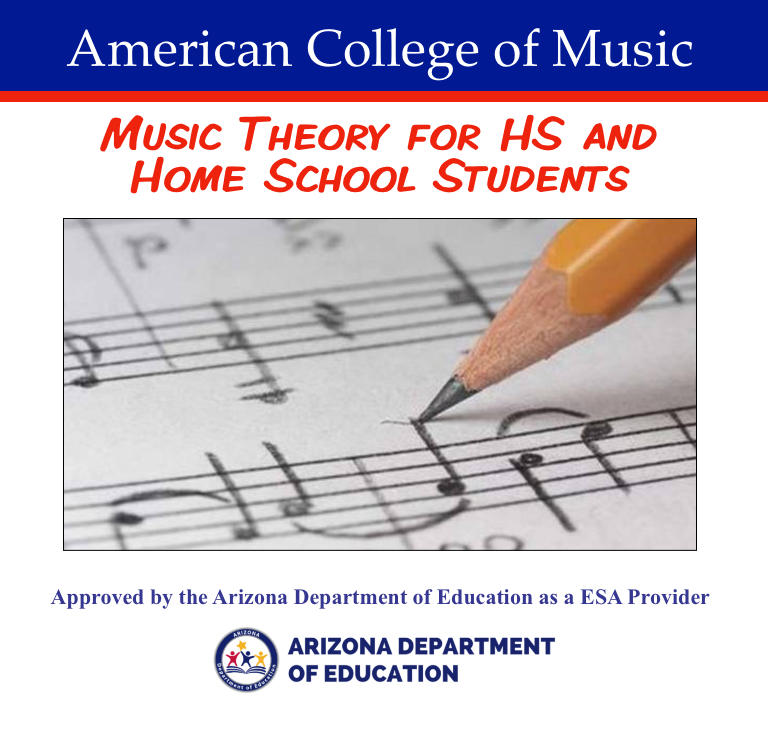
Introduction to Music Theory (MU 101)
Course Designed For Advanced High School and Home School Students
The American College of Music has been offering 100% educational programs designed for working music educators since 2019.
As part of the newly developed educational extension program, ACM offers an Introduction to Music Theory, MU 101. This course is traditionally taken by first-year college students majoring in music and is now offered to advanced high school and home school students for college credit.
Students will have access to the same faculty who teach the graduate program at ACM that have over thirty years of experience in teaching K-12 music education and are credentialed in California, Nevada, and Pennsylvania.
Highlights of the program include:
-
Accelerated 10-week course that is 100% Online
-
The course consists of Music Theory, Ear Training, Music History, and Musical Aesthetics.
-
Instruction by music education and music theory faculty
-
MU 101is the equivalent of the first semester of college or university music theory.
-
Financial Aid Available
-
Students must be able to read music.
Most importantly, ACM Online does not accept government funding and relies on private donations to help support its educational mission and values.
The American College of Music is an approved vendor by the Arizona Dept. of Education ESA Program.
The American College is American College of Music is a private institution that is approved to operate by the California Bureau for Private Postsecondary Education (BPPE). Approval to operate means compliance with state standards outlined in the California Educational Code and is currently seeking accreditation by an agency recognized by the United States Department of Education.
The American College of Music admits students of any race, color, national and ethnic origin to all the rights, privileges, programs, and activities generally accorded or made available to students at the school. It does not discriminate based on race, color, national and ethnic origin in the administration of its educational policies, admissions policies, scholarship and loan programs, and athletic and other school-administered programs.




